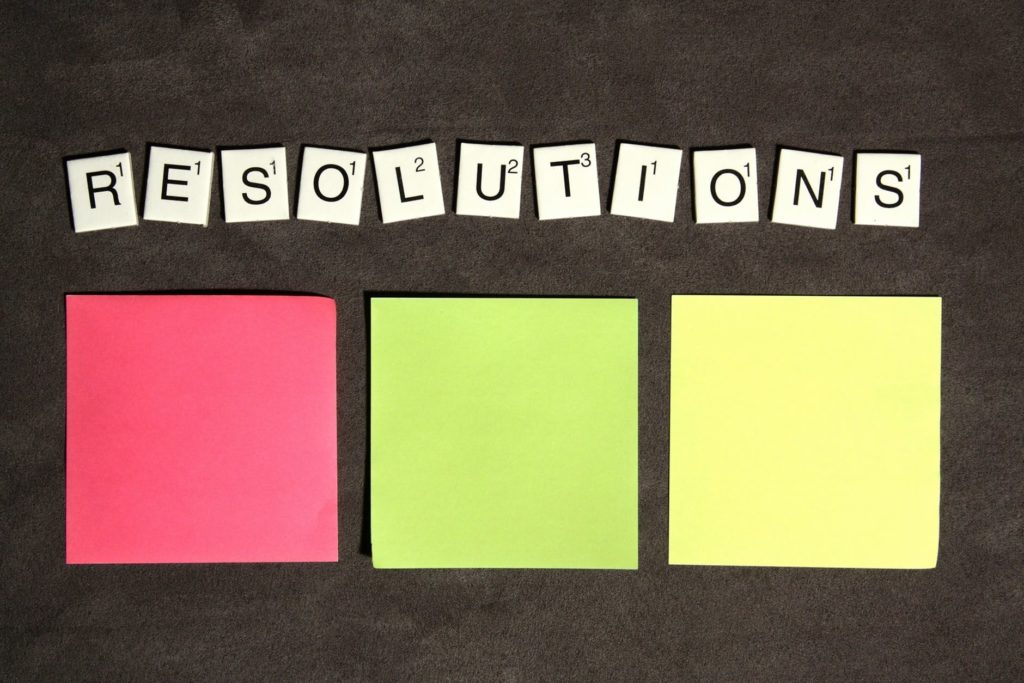Estate planning resolutions may not be as popular as weight loss, or new year-new you promises, but they should be at the top of everybody’s list.
Estate Planning. It’s been on your checklist for years. There is no better resolution than to get your will, trust, or healthcare directives done. Make a list of your planning priorities, research your options, and contact an estate planning attorney. You may think your estate is “simple” but every family has unique planning challenges. An experienced estate planner can help you decide if a living trust is right for your family, which guardianship issues you need to think about, and how to plan for the next phase of your life. Get it done before the weather warms and your thoughts turn to other things. Estate planning resolutions will bring you peace of mind, and make things easier for your family.
Some people like to start their New Year’s off with a clean slate, going through the past year’s files and tossing or shredding anything they don’t absolutely need. However, many don’t, in part because we’re not sure exactly what documents we need to keep, and which we can toss. This article from AARP Magazine provides the missing information so you can get started: “When to Keep, Shred or Scan Important Papers.”
Tax Returns. Unless you’re planning on running for office, the last three years of tax returns and supporting documents are enough. That’s the window the IRS has to audit taxpayers. But there are some exceptions: if you are self-employed or have a complex return, double that number to six years, which is how much time the IRS has to audit you, if it suspects something’s fishy.
Regardless of how you earn your income, visit MySocialSecurity.gov account before shredding to make sure that your income is being accurately recorded. Having your tax records in hand will make it easier to get any figures fixed.
As for documents regarding home ownership, keep records related until you sell the house. You can use home-improvement receipts to possibly reduce taxes at that time.
Banking and Investments. If you or your spouse might be applying for Medicaid to pay nursing home costs, you’ll need to have five years of financial records. That includes bank statements, credit card statements, and statements from brokerage or financial advisors. This is so the government can look for any asset transfers that might delay eligibility.
If that’s not the case, then you only need banking and financial statements for a year, except for those issued for income-related purposes to provide the IRS with a record of tax-related transactions. Your bank or credit card issuer may have online statements going back several years online. However, if not, download statements and save them in a password protected folder on your home computer.
Stocks and bonds purchases need to be kept for six years after filing the return reporting the sale of the security. Again, this is for the IRS.
If you have a stack of cancelled checks, shred them. Most every bank and credit union today have an electronic version of your checks.
Medical Records. These are the records you want to keep indefinitely, especially if you have had a serious illness or injury. The information may make a difference in how your physicians treat you in the future, so normal or not, hang on to the following documents: surgical reports, hospital discharge summaries and treatment plans for major illnesses. Put these in a password-protected folder in your computer or a secure cloud-based account, so they can be shared with future healthcare providers. You should also keep immunization and vaccination records. The goal is to have your own medical records and not to rely on your doctor’s office for these documents.
Maintain proof of payments to medical providers for six years, with the relevant tax return, in case the IRS questions a health care deduction. Doing this along with estate planning resolutions is the perfect way to start 2020 of right.
Reference: AARP Magazine (August 5, 2019) “When to Keep, Shred or Scan Important Papers”



